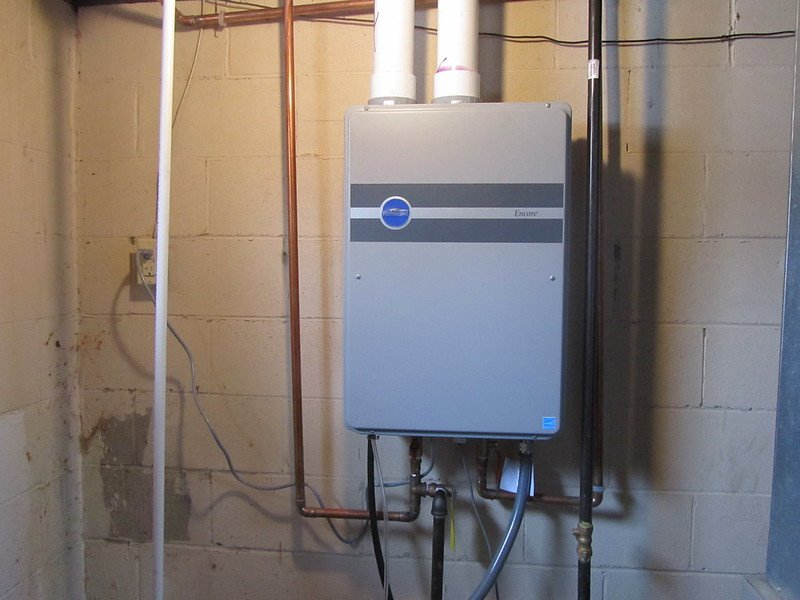When investing in one or more hot water heaters for your home, it’s important to understand the difference between a basic hot water heater that uses a tank and a tankless hot water heater.
Most people are familiar with standard hot water heaters, but few have much experience with tankless units.

Tankless hot water heaters offer some impressive advantages, but you should never invest in one without understanding how they work and what benefits and drawbacks they come with.
We dig into all those details below to help you learn how tankless water heaters work and whether they’re right for you or not.
If you’re having any issues with your current tankless water heater or facing other plumbing issues you aren’t sure how to resolve, go to these guys for help.
What a Tankless Water Heaters Work
Standard water heaters are made up of a holding tank, a heating element, and a thermostat. These units rely on the heating element to raise the water temperature in the holding tank to a specific temperature.
The thermostat controls the final water temperature within the tank and can be adjusted up or down to control the final temperature of your home’s hot water.
Tankless water heaters work in a very different manner. These units still rely on electric or gas heat elements, but they don’t have any holding tanks.
Instead, the units have a series of pipes that water flows through. When you begin running hot water somewhere in your home, cold water is directed through your heater’s pipes and warmed up to the desired temperature before reaching its final destination.
The heater can operate forever without stopping, but most tankless water heaters are only rated for a maximum water flow between two and five gallons per minute.
This isn’t always enough water to meet the hot water needs of a full household. Tankless water heaters are sometimes used in conjunction with standard water heaters to supply an endless stream of hot water to a specific bathroom or appliance in the home.
Some homeowners will utilize multiple tankless heaters to ensure they always have enough hot water for all their different applications. That’s why it is better to purchase the most efficient brands like this Rinnai water heater for your home to be safe.
There are serious benefits that come with using these units, but tankless water heaters have downsides. Learn about both below.
Read Also:
The Advantages of a Tankless Water Heater
If your household doesn’t use a large amount of water each day, a tankless or on-demand water heater can make your home more energy-efficient.
That’s because the units don’t have to keep water heated at a specific temperature all the time as traditional water heaters do.
Tankless water heaters also allow you to take long showers, fill your bathtub up as high as you want, and enjoy hot water without having to worry about running out.
The units also tend to last much longer than hot water heaters that rely on tanks. The average 20 years, and many last far longer when maintained properly.
These heaters aren’t always the best for every household, though, and they come with their share of disadvantages as well.
The Disadvantages of a Tankless Water Heater
One of the most notable disadvantages of getting a tankless water heater is that it will cost you more money than a standard water heater will upfront.
You’ll spend far more on this type of heater than you would for a standard model. A tankless model will likely last longer, though, helping you recoup that initial investment.
Tankless water heaters also limit the flow rate of hot water in your home, and they require a small amount of time to start providing you with hot water.
This means you likely won’t be able to enjoy hot water at multiple locations in your home while utilizing a single tankless heater.
If you need to run multiple showers at the same time or run a dishwasher or clothes washer while showering or bathing at the same time, you will either have to install multiple tankless heaters in parallel, or you’ll have to go with a standard tank heater instead.
Now that you understand how tankless water heaters work better and know a bit about their benefits and downsides, you should be able to decide if these specialized heaters are right for your home or business.
Consider if a tankless unit will keep up with your hot water demands, and think about if the utility savings will be good enough for you to recoup your initial investment when purchasing one of these modern heaters.









